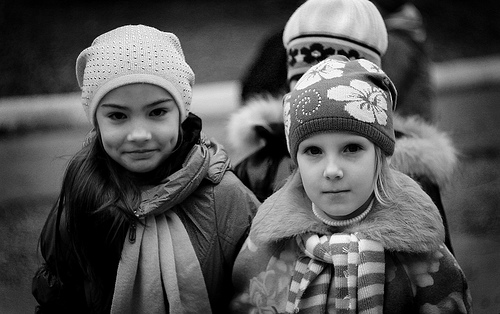 Today, Russian President, Vladimir Putin, signed a law banning Americans from adopting children from Russia in retaliation for an Act that President Obama signed regarding human rights violations. The law will become effective January 1, 2013. This law will have a devastating impact on the thousands of children without families in Russia, and will reportedly even block the adoptions currently in process. It is estimated that there are approximately 1,500 American families in the process of adopting from Russia and 46 of them have been matched with a referred child. These children will now be left behind because of politics.
Today, Russian President, Vladimir Putin, signed a law banning Americans from adopting children from Russia in retaliation for an Act that President Obama signed regarding human rights violations. The law will become effective January 1, 2013. This law will have a devastating impact on the thousands of children without families in Russia, and will reportedly even block the adoptions currently in process. It is estimated that there are approximately 1,500 American families in the process of adopting from Russia and 46 of them have been matched with a referred child. These children will now be left behind because of politics.
Unfortunately, politics plays into adoption more than most might realize, and sometimes have a negative impact on children. It is truly sad, especially when you take into consideration how many orphans are reported in Russia. According to iOrphan, a charitable organization that serves in Russia, there are 730,000 orphans in Russia in need of families and this number grows annually. Sadly, many Russian families will not consider adoption, while there are many American families that desire to adopt from Russia or other Eastern European countries such as Ukraine or Bulgaria. International adoption was a way for approximately 35,000 children to find families over the past 10 years, adoption will now no longer be an option for these children.
Russia, however, is not the only country where politics play a role. Countries such as Honduras are also affected by politics. This past year, there were many strikes within the country that has caused delays and shutdowns in the Honduran adoption process. We have also been a witness to other countries where politics slow down or change the adoption process due to changes of appointed officials, party views on adoption, and strained relationships with the U.S. government.
Adoptions from Hague Convention countries, such as Bulgaria offer a solution. Such Convention countries often recognize that children have a right to a loving permanent family, and when that family cannot be found in their country of origin, a family may be found through intercountry adoption. As we have shared in past blogs, the Bulgarian government has taken many important steps to make the adoption climate friendlier for international adoption from Bulgaria. Changes in adoption laws in 2010 created more opportunities for children to find their forever family in a more timely fashion and many children are able to come home at a younger age than previously. In addition to the Bulgarian government, our Bulgarian partner VESTA is comprised of individuals who are wonderful and committed to finding homes for children in need.
Unfortunately Russia has made a political decision that does not put its children first. In contrast Bulgaria deserves much credit for its dedication to improve the lives of its children and for choosing to put the child’s needs first. By doing so, Bulgaria has become a bright spot in international adoption for families to consider.
Photo Credit: Mitya Kuznetsov
For more information about MLJ Adoptions’ international adoption programs, please click here.
